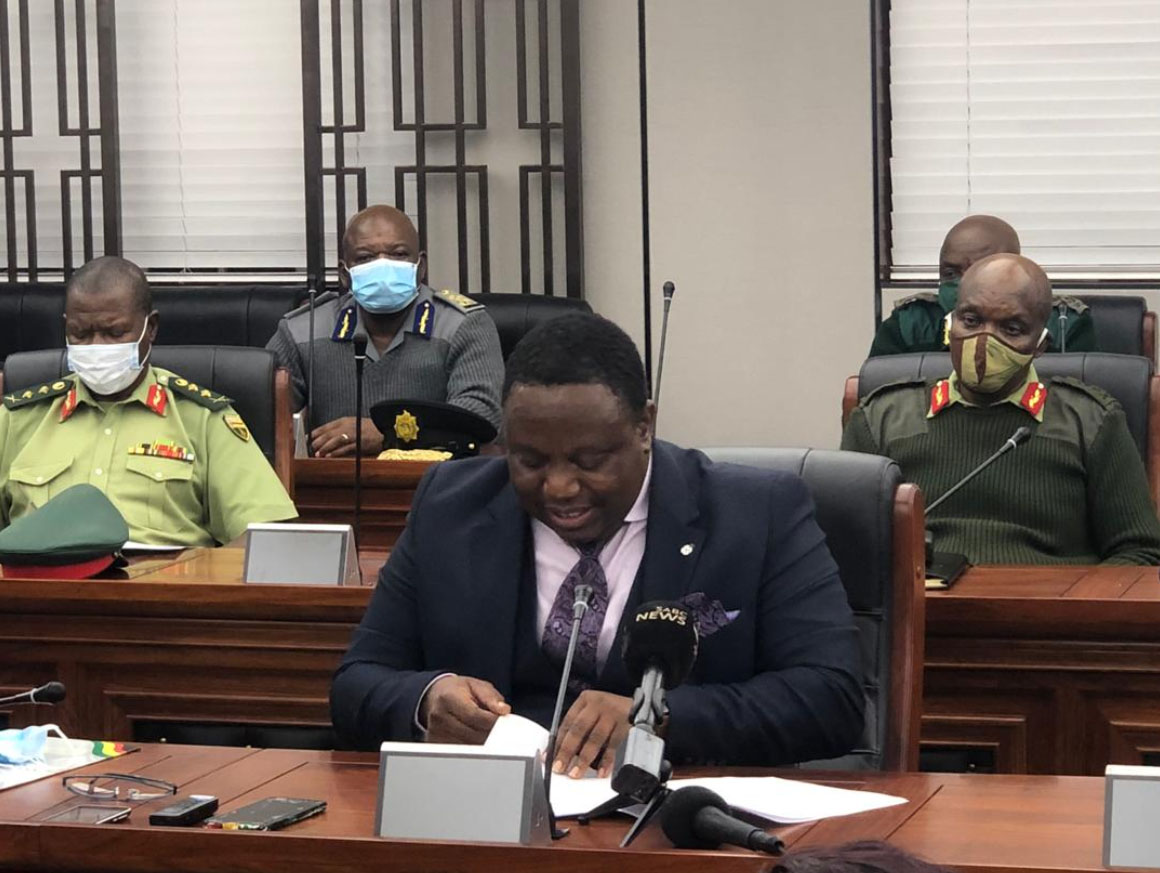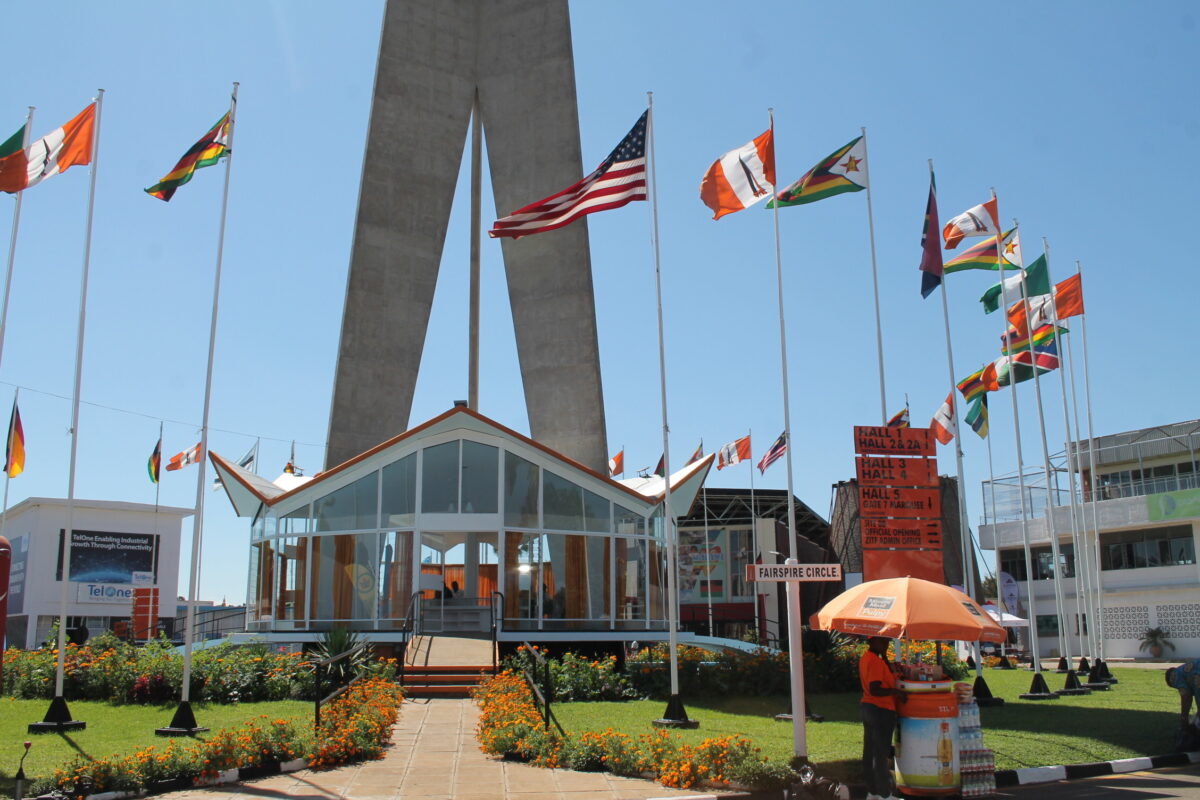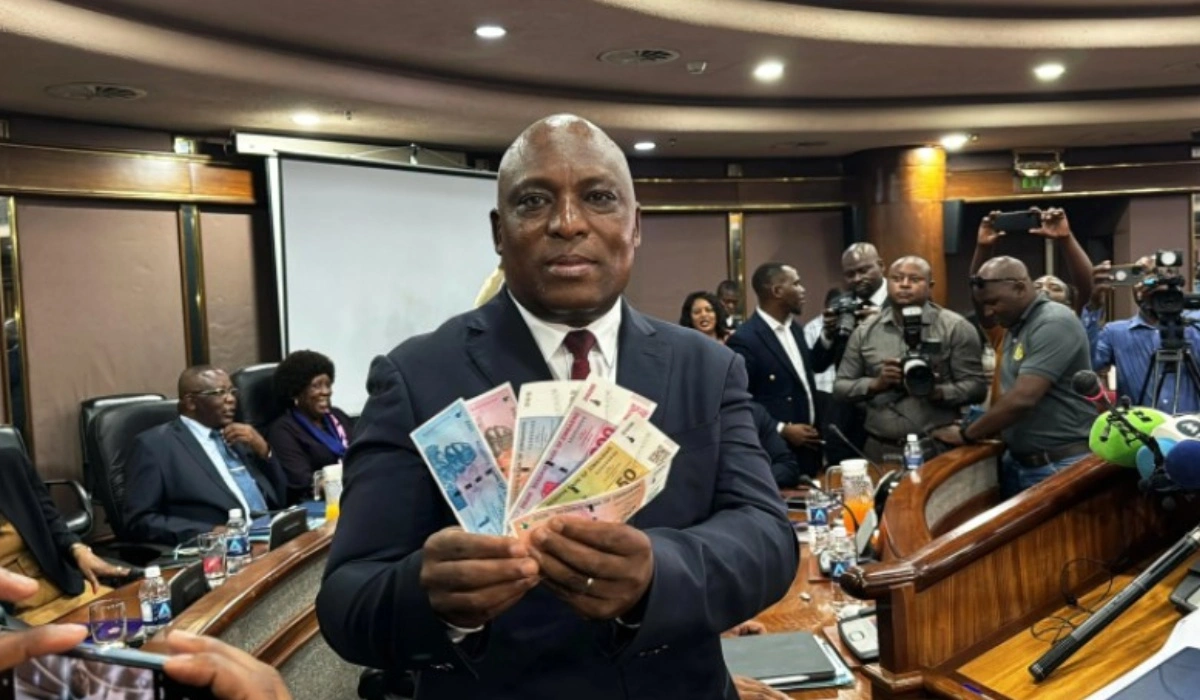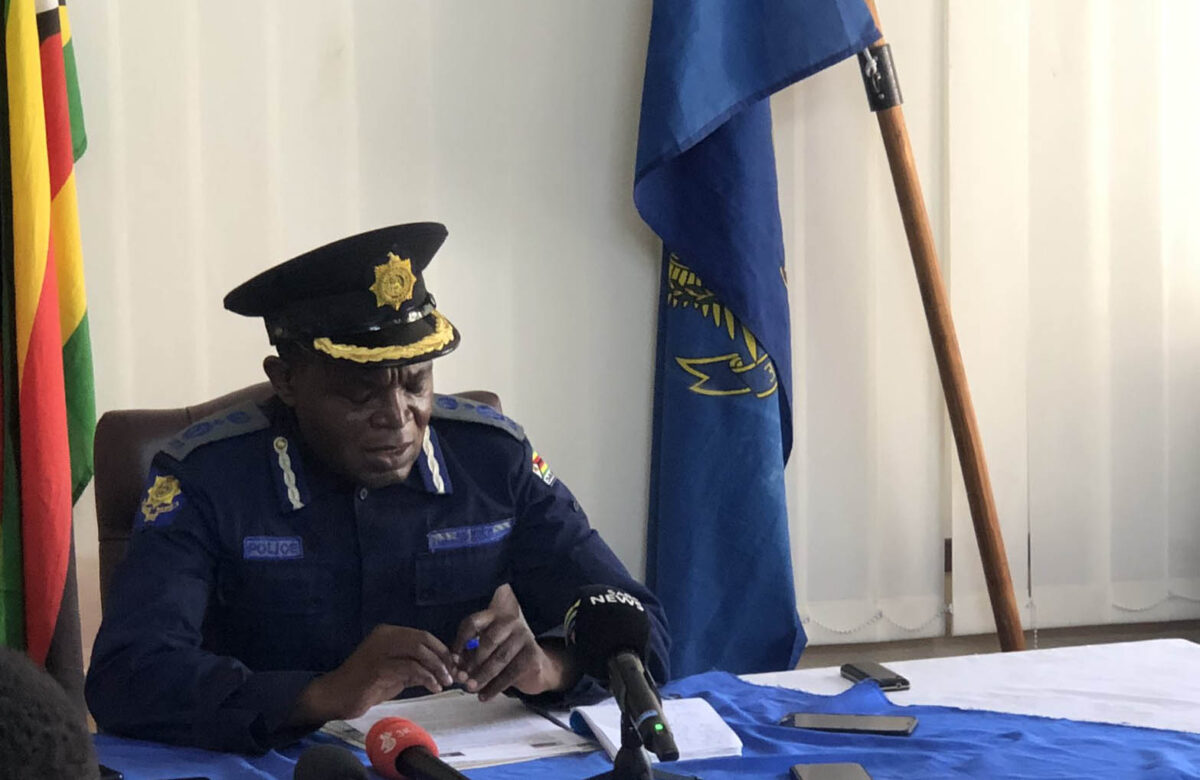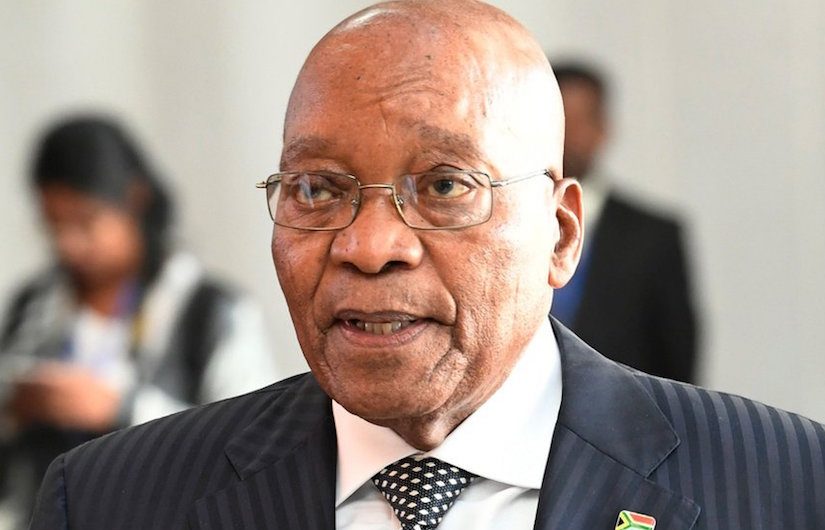HARARE – The Zimbabwe government on Wednesday denied rumours of an “imminent military coup” at a surprise news conference attended by military chiefs and state security ministers.
Home Affairs Minister Kazembe Kazembe denied the alleged plot, which many outside the boardroom at President Emmerson Mnangagwa’s Munhumutapa offices were hearing for the first time.
“The government has noted with grave concern these rumours suggesting an imminent military coup d’état in the country. The government would like to unequivocally debunk and dismiss these rumours with the contempt they deserve,” Kazembe said following a meeting of the Working Committee of the National Security Council.
“The purveyors of this false coup narrative claim former Zanu PF members who fell by the wayside and largely went into self-imposed exile at the advent of the new dispensation in November 2017 are coming together in a united front with some named senior government leaders, some members of the security forces and elements of the opposition formations. This is in a bid to taint the image of the president, to undermine the legitimacy of the president and to render the country ungovernable.”
Kazembe said the rumour, which he claimed was being fueled by “merchants of discord” including opposition politicians, journalists and religious leaders further suggested that once a coup succeeded, a National Transitional Authority would be established to “govern Zimbabwe minus Zanu PF for an unspecified period.”
He added: “Of course nothing could be further from the true reality of Zimbabwe’s security situation, now and for the foreseeable future. Indeed, both claims of a military coup d’état and an NTA in the making amount to mere agenda-setting by merchants of discord amongst our people with the support of their foreign handlers. They are completely unfounded.
“For the avoidance of doubt, there is no coup in the making, nor is there any form of transitional authority or inclusive government that is contemplated by the new dispensation except in the fertile imagination of the purveyors of this false narrative.”
Kazembe singled out former Zanu PF political commissar Saviour Kasukuwere, who fled Zimbabwe after former President Robert Mugabe was ousted in a November 2017 military coup and replaced by Mnangagwa, as well as MDC Alliance deputy chairman Job Sikhala, whom he described as the “purveyors of this falsehood and a coterie of their accomplices who we are aware of.”
“They must not to cry foul when the long arm of Zimbabwean law catches up with them in due course,” Kazembe railed, as he claimed that Zimbabwean activists writing on social media had also become part of what he described as an “illegal and subversive bandwagon under the control of certain diplomatic missions.”
Preachers Nathan Hambwe of Miracle Ministries based in the United States; “rabid anti-government” street preacher Talent Chiwenga and Simon Chilu of Jesus Christ Ministries were also warned. Online news organisations Nehanda Radio, ZimEye and Gambakwe Media were named as part of the plot.
Earlier Wednesday, police arrested three MDC Alliance Youth Assembly activists including Harare West MP Joana Mamombe, accusing them of faking their abduction on May 13 to give the government a bad name.
Kazembe said the “fake abductions” were being coordinated with some foreign embassies, which he did not name. He said the authorities would tackle those spreading a “medley of falsehoods”.
“Most intriguingly, there has concurrently evolved a palpable pattern whereby certain foreign missions are now in the habit of misleading their capitals through purported intelligence gathered from these same dubious sources,” Kazembe claimed, while accusing some western diplomats of “jettisoning any semblance of impartiality.”
Zimbabwe, he insisted, “is stable and peaceful internally.”
Kazembe spoke after Mnangagwa earlier Wednesday told his Zanu PF party’s Politburo that Zimbabwe’s currency was under attack from businesses that were constantly hiking prices as part of a wider political plot against his government.
The 2018 elections were supposed to end Zimbabwe’s pariah status with the West, but Mnangagwa’s government has been accused of resorting to Mugabe-era tactics of heavy handedness against opponents.
The main opposition accuses the government of using a coronavirus lockdown to erode political rights.
A year after Zimbabwe ended a decade of dollarisation and reintroduced the Zimbabwe dollar, the local currency has tumbled on the black market, fuelling price increases and pushing inflation to 765 percent.
When Mnangagwa took over from Mugabe in 2017, he promised to revive the economy, but life has become harder as people grapple with acute shortages of foreign currency, medicines and food, and unemployment above 80 percent.
“We are witnessing a relentless attack on our currency and the economy in general through exorbitant pricing models by the private sector,” Mnangagwa said.
“We are fully cognisant that this is a battle being fueled by our political detractors, elite opportunists and malcontents who are bent on pushing a nefarious agenda they will never win.”
Economic analysts say the government’s budget is under pressure from spending to combat the coronavirus outbreak, which will force authorities to resort to printing money, stoking inflation further.
Inflation is seen ending this year way above the central bank and treasury’s target of 50 percent due to a weak exchange rate and shortages of food following a drought.
